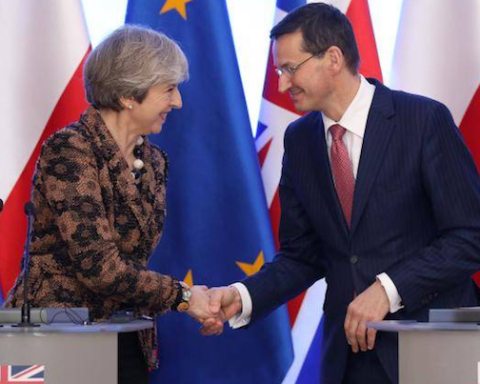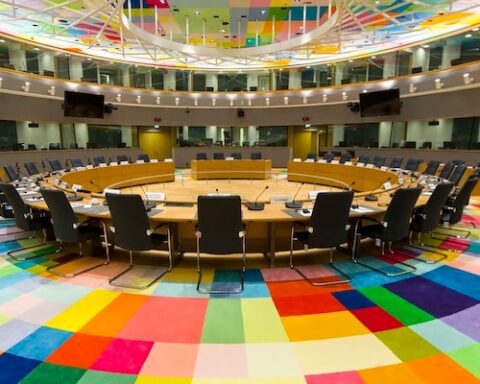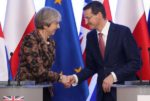In the wake of three deadly terror attacks in just under three months, the UK is understandably reeling and at the forefront of global discussions about terrorism, citizenship and security. These discussions have pushed the U.K.’s “Brexit” decision back into the news just days before this week’s June 8th snap elections. The background leading up to these elections is as important as their outcome, and understanding how one of America’s staunchest global partners began their recent journey will help illuminate what those outcomes may mean on the world stage.

Why Snap Elections?
As things stood, the U.K. was not scheduled to have elections until 2020, in compliance with their five-year election cycle. To most Americans, who consistently vote in less than fifty percent of non-Presidential elections, pushing up the time for citizens to participate may seem counterproductive. The idea of a “snap election” – where a vote is called before its appointed time – reflects the character of many European political traditions, and has been invoked eight times previously in the U.K. alone. In most cases, it’s called by a majority party looking to strengthen their hold in a branch of government. In the U.K., however, there have been times where one of the minority parties has regained control of Parliament.
Following the Fixed-Term Parliament Act of 2011, calling for a snap election requires two-thirds of Parliament to agree before pushing the normal five-year timeline aside. Since nearly all of the opposition parties voted to participate, it seems likely both the incumbent Conservative Party and all others believe they have a good chance at winning. Prime Minister Theresa May is looking at the elections to strengthen her parliamentary position among the four other political parties in the U.K. while she implements Brexit.
May’s Unusual Rise
The fact that Theresa May is currently in a position to implement Brexit is one of the more fascinating political subplots of 2017. Following the Brexit vote last year, sitting Prime Minister David Cameron resigned his post and opened the door for a Conservative Party leadership election. May, who won her position by default after an election cycle described with movie references to “The Godfather” and “Scarface,” has been harshly critical of the opposition parties, saying they were trying to undermine the referendum victory of Brexit. A victory in the snap elections would give the Conservative Party a strengthened majority through 2022, long enough to oversee the entirety of the Brexit split with Europe and negotiate new trade agreements with the continent.
Prime Minister May is confident enough in her present lead that she has refused to participate in televised debates with opposition party leaders. That decision was widely criticized by her opposition during a televised debate May 31st, where Home Secretary Amber Rudd stood in for her. Since this weekend’s terrorists attacks in the London Bridge pub district, other voices have called for debate.
Brexit Support
The Brexit vote opened up divides in the country and since the referendum the specifics of its implementation remain a hot topic in this campaign. Legally, Brexit could have been implemented by the Prime Minister, a still-contentious issue that May has been wise to acknowledge.
A leading voice of the opposition has been private investment manager Gina Miller, who challenged the legal authority of the executive branch of the British government to implement Brexit without parliamentary legislation. Miller employed a politically savvy brand of twenty-first century campaign engagement, using a tactical voting initiative to back candidates opposed to a hard-Brexit. After May called for the election, Miller raised over £260,000 ($340,000) in four days through a GoFundMe campaign to support politicians who have advocated for a ‘soft’ Brexit.

Miller’s GoFundMe has been careful to avoid advocating the outright stopping of Brexit, which won its referendum vote by 52 to 48%.
“We will support candidates who campaign for a real final vote on Brexit, including rejecting any deal that leaves Britain worse off,” the website says, explaining what will be done with the money that has been raised by donations.
Some have called for the snap elections to be postponed, but the U.K. appears to be legally bound to the June 8th timeline because parliament is dissolved 25 working days before an election.
Multiparty Opposition
In comparison to America, the U.K. operates under a multiparty system. This lack of a binary “us vs. them” breakdown can be somewhat confusing, but helps to bring multiple nuanced viewpoints into political discourse. The Party of Liberal Democrats is running for the centrist vote. The UK Independence Party (UKIP), which was a major voice in the lead up to Brexit, is now threatened with extinction and will likely vote along with the ruling Conservative Party. The Scottish National Party is running on a promise to hold a new referendum on the independence of Scotland.

Representing Labour, the largest opposition party in the U.K., Jeremy Corbyn has laid out plans to drive the party further to the left. The Labour Party has been on the decline in the polls since Corbyn took office. The Conservative Party has been hitting Labour on the strong performance of the UK’s economy since Brexit. This performance has boosted the ruling party, and left Labour explaining why their dire warnings in the run up to the vote have failed to manifest.
As an alternative, they have gone with the rare tactic of laying out their platform. Previously Labour Party issued an official platform for the upcoming election, confirming the party’s leftward shift. If elected, Labour promised to, among other left-leaning policies:
- Nationalize rail, buses, and energy businesses
- Eliminate tuition for university
- 20:1 limit on gap between the lowest and highest paid workers in companies given Government contracts
- New taxes for people earning over £80,000, around $100,000
- Favor a ‘soft’ Brexit, which would not expel current EU citizens or even leave the currency union
It appears the strategy may have worked. A new Survation poll conducted over the weekend before the London attack shows that Labour has slashed the Conservatives lead from 17 points to just 1 point over the past month.

Political opinion polling specialist David Cowling observed, “This election was supposed to be in the bag for the Conservatives; the only area of doubt was the actual size of their enormous parliamentary majority. But in the final weeks of the campaign, the overwhelming Conservative leads in the polls have shrunk and even, in a few cases, reached single figures.”
Other leading polling firms have reported Conservative leads ranging as high as 11 and 12 points.
Whichever party is ultimately victorious in the elections will have to negotiate the terms of Brexit with a European Community headed by Germany, which will not hold elections until September.
LIMA CHARLIE NEWS, NEW YORK BUREAU, with Michael Gardner and Diego Lynch
Lima Charlie provides global news, insight & analysis by military veterans and service members Worldwide.
For up-to-date news, please follow us on twitter at @LimaCharlieNews








![Blossoming Russo-Turkish alliance leaves U.S., NATO behind [Lima Charlie News]](https://limacharlienews.com/wp-content/uploads/2019/07/Russia-Turkey-alliance-leaves-U.S.-NATO-behind-480x384.png)

